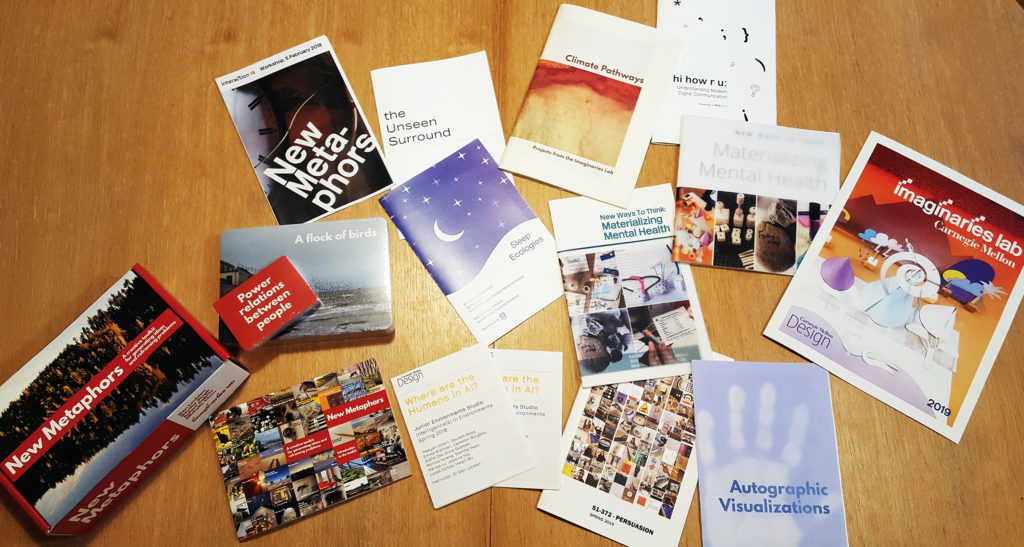Join our project presentations on October 31, 10am–1pm (EDT), 2pm–5pm (GMT)
Welcome to 51-471/771 Imaginaries Lab: Research Through Design for fall 2020. This semester—working remotely—we’re focusing on maintenance as a research project topic, using “(in)Tangible Thinking” kinds of methods to investigate it. We’ll be using a research through design approach to explore how we can investigate and ‘materialize’ (physically or digitally) how people imagine and understand the complex and intangible issues around maintenance, care, and related ideas, how we can help people share their thinking, and what designers and researchers can learn from people’s ideas. We’re grateful to be supported in this project by the Frank-Ratchye STUDIO for Creative Inquiry.
Background
The Imaginaries Lab is an international research studio developing design methods to explore and support people’s imagining—both new ways to understand, and new ways to live, in an increasingly complex world. One aim is to embody this approach through immersing students in creative research through design projects, including prototyping and using experimental design methods in the wild. For the last few years we’ve offered fall electives to Carnegie Mellon students which seek to address this through topics including mental health, futuring, and the climate crisis. Projects have been exhibited or tried out at events including the Mozilla Festival, Many Tomorrows Festival, and World Urban Forum. This year, with a different context amidst the pandemic, working remotely with students (and external collaborators) around the world, we’re going to make the most of new forms of collaboration and explore the development of new research tools which can work in distributed settings, and culminate the project with an online event.
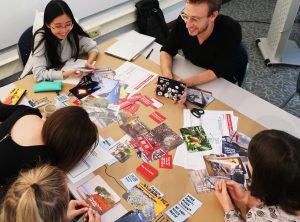
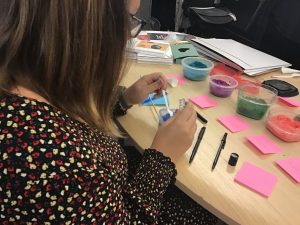
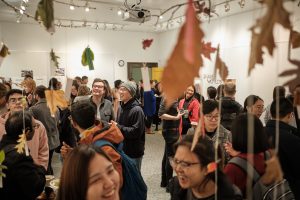
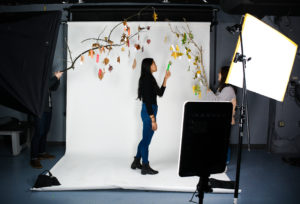 Although this is a “class” from the university’s point of view, it is really more of a set of design research projects.
Although this is a “class” from the university’s point of view, it is really more of a set of design research projects.
We’ll be meeting over four Friday evenings + Saturdays (11-12 September, 18-19 September, 2-3 October, and 30-31 October) which adds up to the right number of hours for the university to treat it as a full 9- or 12-unit class. These timings are a week apart, two weeks apart and then four weeks apart, so there is time for the projects to be developed; this is an unusual format for Carnegie Mellon, but is intended to be more like a real studio or design jam-type event, and to enable deeper project work, exploration of ideas, and interesting guests to join us. In 2019 we had full weekends (Saturday and Sunday) but that was exhausting for everyone concerned. With multiple time zones, our 2020 plan will also need a lot of flexibility.
What you’ll do, as a student
You will: learn and develop a variety of tools for conducting innovative forms of research through design, including exploring how people think, understand and imagine complex social and technological concepts, and depending on your expertise or interest, will be able to concentrate on applying particular skills as part of multidisciplinary teams.
This translates into: over the four Friday/Saturday meetings, and the weeks in between, you will be part of a multidisciplinary group of 3–5 people (from the whole group of around 16), developing a research through design project from initial scoping and background research, consultation with subject matter experts, and building on existing projects, through developing prototype tools and methods, to trying these out with participants, generating new knowledge, and presenting / demonstrating / running an online workshop using the tools you’ve created. Your project will focus on a specific area of concern, or particular angle on research methods, developed in conjunction with external collaborators.
If you’re interested, we will aim to turn your work into a published output for a conference or journal, so there is additionally the opportunity to gain experience in this aspect of academic research. At the very least, we will produce a booklet or exhibition catalogue online together to explain our projects to others—some examples from previous projects over the last few years:
What’s the topic? (In)Tangible Thinking, applied to “maintenance”
How do people imagine and make sense of complex, systemic issues, from the personal (e.g. mental health) through the everyday level (e.g. technologies, organizations), right up to global scales (e.g. the climate crisis)? Traditionally there have been methods in social science research, ethnography, cognitive anthropology, human-computer interaction, cognitive ergonomics and human factors, educational research, and other fields, which have variously concentrated on different kinds of exploration, from formal mathematical analysis of mental models to qualitative clustering and analysis techniques. But there is the potential for more creative explorations, involving perhaps ‘materializing’ abstract concepts or developing new metaphors to explain things, or making new kinds of interfaces to reveal phenomena in new ways—somewhere in between data physicalization, explorable explanations, art therapy, tangible service design tools, gigamapping, collective imagery weave, and analog computing.
These ‘creative research methods‘, inventive methods and ‘inventing the social‘ are emerging as new ways for design methods, and methods drawn from other creative disciplines, to be part of a research through design approach, using design as a form of enquiry for other disciplines (and for design itself). We—together—are going to be developing methods, and applying them to a particular domain, maintenance, with some input from experts working on the subject in different ways: Naomi Turner and Dr Laura James from the Festival of Maintenance, Dr Nazlı Terzioğlu Özkan from Linköping University, and Cayla Key, Mozilla Foundation fellow at Northumbria University.
Course policies, admin, etc
This is essentially a research project, carried out for credit. Assessment will be based on the work you do throughout the four weekends, including documentation of your process and a final deliverable of a shareable, public outcome from your group project. This is an unusual semester to be a student, and I recognise how much uncertainty, stress, and unsettling-ness many of us are experiencing. Don’t worry: we will not be spending entire days in Zoom, but will work out ways to enable and adapt participation so that it is (hopefully) enjoyable and productive. There may be Fridays or Saturdays when you are unable to take part, for many reasons including illness (your own or others’), care responsibilities, religious events, job interviews, or other reasons, and I am more than happy to make accommodations. You are adults.
Plurality Statement
(I have adapted this from a statement produced by Marysol Ortega, Carnegie Mellon)
Our learning space is a place of abundance where all of us have a wide collection of skills, strengths, vulnerabilities, and experiences. We all benefit from sharing our various forms of difference (gender, sex, sexuality, dis/ability, age, socioeconomic status, religion, national origin, language, ethnicity, race, and culture), which makes us capable of being a teacher and a learner. Your suggestions on how to actively shape the learning environment are encouraged and appreciated. Please let me know ways to improve the effectiveness of the course for you personally or for other students or student groups.
Any questions, please email: danlockton@cmu.edu—I have “office hours” available to book on Mondays and other days if you email me.

